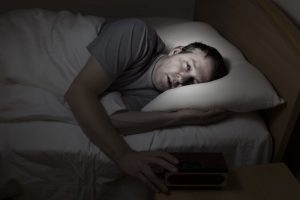 Are you having trouble sleeping? Sleep apnea could be to blame. Many people don’t even know they have a sleeping disorder even though they are having restless nights. Keep reading to learn what sleep apnea is, the symptoms to watch out for, and how sleep apnea therapy in Dublin could give you that good night’s sleep you’ve been craving.
Are you having trouble sleeping? Sleep apnea could be to blame. Many people don’t even know they have a sleeping disorder even though they are having restless nights. Keep reading to learn what sleep apnea is, the symptoms to watch out for, and how sleep apnea therapy in Dublin could give you that good night’s sleep you’ve been craving.
What is Sleep Apnea?
Sleep apnea is a potentially serious sleep disorder where your breathing starts and stops during sleep. There are three main types of sleep apnea:
- Obstructive sleep apnea: This occurs when the throat muscles relax and block off your breathing.
- Central sleep apnea: This happens when the brain doesn’t send proper cues to your muscles that control breathing.
- Complex sleep apnea syndrome: The last type is actually a combination of obstructive sleep apnea and central sleep apnea.
What Are the Symptoms?
Sleep apnea can show up in many symptoms but look out for the most common ones below:
- Do you wake up with a sore or dry throat?
- Do you snore loudly?
- Do you ever wake up with a choking or gasping sensation?
- Are you sleepy during the day?
- Do you grind or clench your teeth?
- Are you sleepy when driving?
If you answered yes to a few of the above questions, talk to your dentist immediately about what could be going on before sleep apnea and its symptoms worsen.
What Can I Do to Help My Sleep Apnea?
If you have a mild case of sleep apnea, a behavioral or habitual change may be able to treat this disorder. See our tips for at-home treatment:
- Weight loss: Being overweight automatically increases your chances of sleep apnea.
- Avoid alcohol and sleeping pills: Although they may seem like they’re helping you sleep, they’re actually making it harder for you to sleep well in the long run.
- Stop smoking: If you smoke, try to stop. Tobacco and smoking increase the swelling in your upper airway, which could worsen your condition.
What Can My Dentist Do to Help?
There are multiple treatment options and the best solution for you will be based on the severity and type of sleep apnea you have. Dentists can custom-make an oral appliance to wear at night that repositions your tongue and lower jaw to keep your airways clear.
Your dentist also may recommend wearing a nightguard. This will prevent you from grinding and clenching your teeth during sleep, which can be a contributing factor to sleep apnea.
The most common treatment for sleep apnea is a CPAP (continuous positive airway pressure) machine. This device uses a hose and mask or nosepiece that delivers you constant and steady air pressure to help you sleep through the night.
No matter how severe or what type of apnea you have, talk to your trusted dentist to see what will help you. They will recommend the best treatment for you, so you can get your full night’s sleep back!
Meet the Dentist
Dr. Eric Buck is a native Ohioan who loves caring for his patients. He offers a wide variety of treatments including sleep apnea therapy. He is a member of the American Academy of Dental Sleep Medicine to stay up-to-date on all the latest techniques in treating sleep apnea. He currently practices at Distinctive Smiles of Dublin, where he can be contacted through his website or by phone at (614) 792-1800 for any questions.
